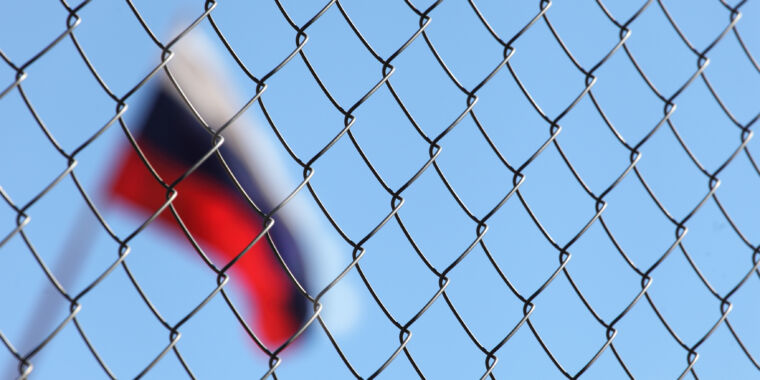Vladimir 18 | Getty Images
Russian companies are plunged into a technological crisis due to Western sanctions that have created severe bottlenecks in the supply of semiconductors, electrical equipment and devices needed to operate the country’s data centers.
Most of the world’s largest chip makers, including Intel, Samsung, TSMC and Qualcomm, halted business in Russia entirely after the US, UK and Europe imposed export controls on products using chips made or designed in the US or Europe.
This has led to a shortage of the type of larger, less thinner chips that go into the production of automobiles, home appliances, and military equipment. The supply of more advanced semiconductors, used in high-end consumer electronics and IT devices, has also been severely curtailed.
And the country’s ability to import foreign technology and equipment containing these chips — including smartphones, network equipment, and data servers — has faltered significantly.
“The whole supply routes from servers to PCs to iPhones — everything — are gone,” said one Western chip executive.
The unprecedented destruction of Western sanctions over President Vladimir Putin’s war in Ukraine is forcing Russia into what the central bank said would be a painful “structural transformation” for its economy.
With the country unable to export much raw materials, import basic goods, or access global financial markets, economists expect Russia’s gross domestic product to shrink by as much as 15 percent this year.
Export controls on “dual-use” technology that could have both civilian and military applications — such as microchips, semiconductors, and servers — are likely to have some of the most serious and lasting effects on the Russian economy. The country’s largest telecom groups will not have access to 5G equipment, while cloud computing products from technology leader Yandex and Sberbank, Russia’s largest bank, will struggle to expand their data center services.
Russia lacks an advanced technological sector and consumes less than 1% of the world’s semiconductors. This means technology-specific sanctions have had a much smaller direct impact on the country than similar export controls on China, the global tech giant, when they were introduced in 2019.
While Russia has many domestic chip companies, such as JSC Mikron, MCST and Baikal Electronics, previously Russian groups relied on importing large quantities of finished semiconductors from foreign manufacturers such as SMIC in China, Intel in the US, Infineon In Germany. MCST and Baikal have primarily relied on foundries in Taiwan and Europe to produce the chips they design.

“Extreme travel lover. Bacon fanatic. Troublemaker. Introvert. Passionate music fanatic.”







More Stories
Best National Burger Day Deals 2024
Trump attacks Fed for ‘playing politics’ with historic rate cut
Tesla “Magnificent Seven” (TSLA) shares report third-quarter earnings this week. Is it a buy before the results?